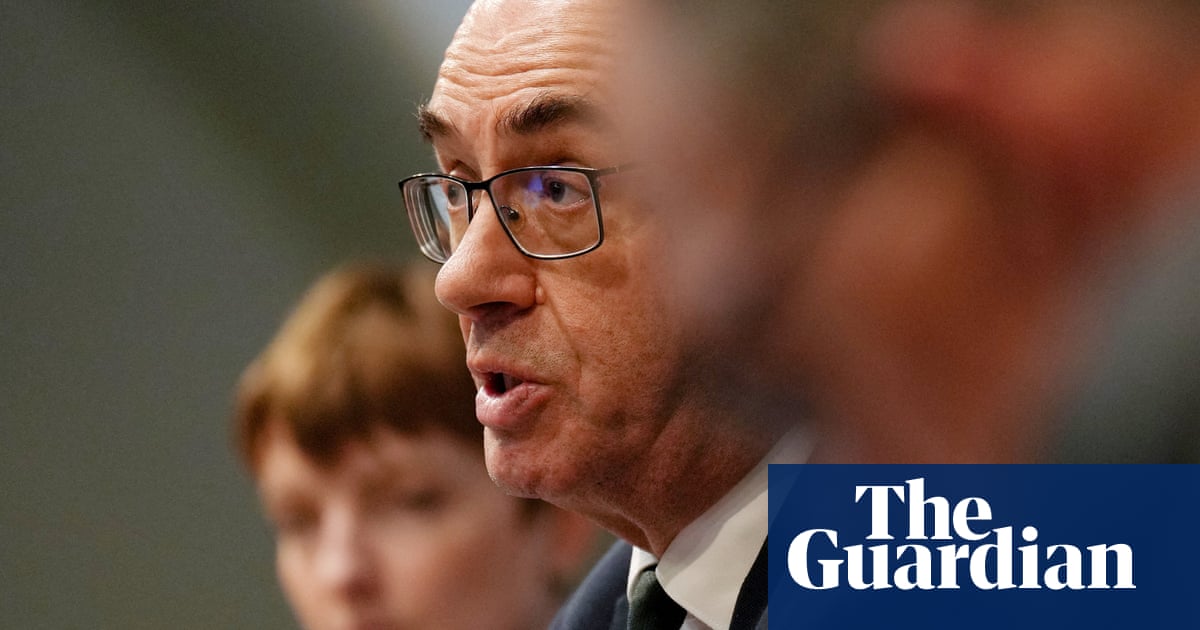Andrew Bailey has urged the UK government to deepen ties with the EU, as he warned a breakdown in global trade would make it harder for theBank of Englandto control inflation.
In a speech in Dublin on Thursday, the Bank’s governor said a stronger relationship between London and Brussels could “minimise negative effects” ofBrexiton trade.
Calling for closer cooperation on financial services as a priority, Bailey said government efforts to reset relations with the EU were a “welcome step forward” after the UK’s formal departure from the 27-country bloc in 2020.
Bailey said, as a civil servant, he took no position on Brexit, and he understood there could be other reasons why voters backed leaving the EU, but he said the evidence showed that the UK’s changing trade relationship had “weighed” on Britain’s economy.
“This does not mean that Brexit is wrong, because there can be other reasons for it, but it does suggest, I think powerfully, that we should do all we can to minimise negative effects on trade,” he said.
The Bank’s governor has previouslycalled for the UK to strike deeper ties with Brusselsto strengthen the economy, ahead of adealagreed between Keir Starmer and the EU’sUrsula von der Leyenin London earlier this month.
On a day ofdramatic developmentsin Donald Trump’s increasingly erratic international trade war, Bailey said tougher barriers to trade made the economy less efficient and could therefore stoke inflation.
UK inflationjumped by more than expected in April, to 3.5% from 2.6% in March, after sharp rises in water bills, energy costs and council tax. The Bank of England targets 2% inflation.
Bailey warned that simmering geopolitical tensions and the fragmentation of international trade suggested the lengthy, complex manufacturing supply chains of the past were unlikely to return.
“The inevitable conclusion is that we cannot assume the supply sides of our economies behave as efficiently as they did before Covid. And this was a substantial cause of the very difficult upsurge in inflation,” he said.
“Our jobs are much harder if we face more inflexible and uncertain supply side conditions in our economies, as we appear to do today.”
His comments came as figures from the Office for National Statistics showed inflation in March rose at a faster pace for private and social renters than older households who own their homes outright, extending an intergenerational gap that has opened up since September 2023.
Inflation was 3.6% for private renters in the year to March compared with 1.8% for “outright owner-occupiers”, the ONS said in itslatest estimate of household living costs.
Sign up toBusiness Today
Get set for the working day – we'll point you to all the business news and analysis you need every morning
after newsletter promotion
Social rents have also jumped, pushing up the cost of living for renters in local authority and housing association homes by 3% in the year to March.
Groups representing young people and renters said the figures provided further evidence of a cost of living gap between younger people and the many older people who had paid off their mortgages and were immune to rising rents and mortgage costs.
Renters tend to be much younger than the average age of outright owners. According togovernment figures, the average age of a private renter is 41, and 53 years in the social rented sector.
Mortgage payers, another group that are younger on average than outright owners, had an inflation rate of 2.8% in the year to March.
Ben Twomey, chief executive of Generation Rent, said the figures were “a sour reminder” of the high costs renters pay to have a roof over their head.
“Homes are the foundations of our lives, but renters across the country are at constant risk of losing their homes and even ending up homeless because of soaring costs that swallow up our earnings.
“News of private renters facing the highest household costs is a sour reminder of how much of a raw deal we are getting.”
